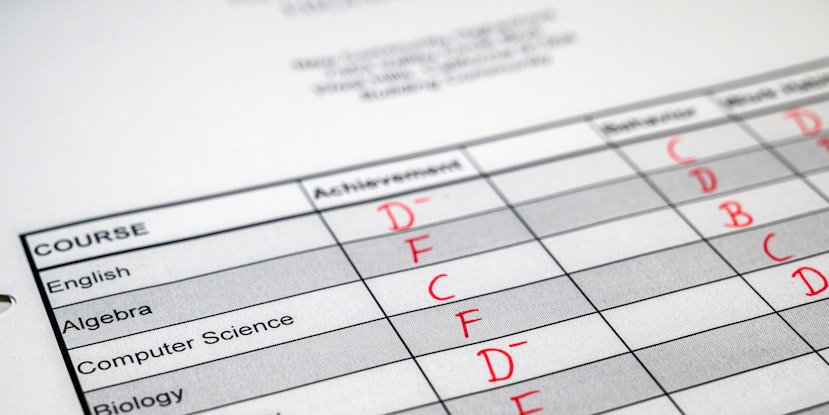TSI Passing Scores – Understanding the Scoring System of the Texas Success Initiative Assessment
Updated November 4, 2024
- What Is the TSI Exam?
empty
empty
empty
- TSI Passing Scores
empty
empty
- Understanding the TSI Score Range
empty
empty
empty
- What If You’re Below the TSI Score Range?
- Do I Have to Take the TSI Exam?
empty
- Frequently Asked Questions
- Final Thoughts
The Texas Success Initiative (TSI) Assessment was created by the Texas Success Initiative to give higher education institutions in Texas a way of determining whether a student is ready for college.
The assessment is an online, computer-adaptive test, which means that the difficulty of the questions adapts according to your performance.
If you answer questions correctly, the questions get harder, but if you struggle, the next question will be easier.
The TSI covers reading, writing, and mathematics skills.
Understanding what the scores in the TSI mean for you and for your college career is important so that you can decide on your next steps.
In this article, you will learn what you can expect from your score report, how to read it, and what it means.
What Is the TSI Exam?
If you do not have an exemption, you will be required to take the TSIA as part of your college application.
You need to take part in the Mandatory Pre-Assessment Activity, documented by the college you have applied for, to ensure that you are ready for the test.
During this you will:
- Receive an explanation about the importance of the TSIA
- Take some practice tests and receive feedback
- Get an explanation of the options available to you if you don’t meet the minimum standards, as well as some information about campus or community resources that you can turn to for help.
The TSIA has three subtests. You will take them online, and the majority of the assessment consists of multiple-choice questions that are aligned with the Texas College and Career Readiness Standards.
You are not timed when completing the TSIA, and you can stop and start if needed as you take the test (apart from the essay writing portion).
TSI Practice with TestPrepOnline
TSI Assessment in Mathematics
In the test, there are 20 multiple choice questions.
These are computer-adaptive, and your performance will change the difficulty of the questions to suit your proficiency.
You will be evaluated on the following areas of math:
- Elementary Algebra and Functions
- Intermediate Algebra and Functions
- Geometry and Measurements
- Data Analysis, Statistics, and Probability
If your results from the main test do not meet the benchmark score as you are completing the test, you will be directed to complete a Diagnostic Test.
This is an additional 10 questions on each section of the assessment.
TSI Assessment in Reading
The placement test in reading has 24 multiple-choice questions that work in the same way as in the mathematics test.
You will be evaluated on the following:
- Literary Analysis
- Main idea and Supporting Details
- Inferences in a Text
- Author’s Use of Language
If your performance is below the benchmark for the assessment by the end of the test, you will need to take some additional Diagnostic questions, 12 in each section for a total of 48 more questions.
TSI Assessment in Writing
This assessment has two parts; the first is a multiple-choice test, like the others, in which you will be expected to answer 20 questions.
These cover the following areas:
- Essay Revision
- Agreement
- Sentence Structure
- Sentence Logic
If your performance in the multiple-choice section of the assessment is not going to meet the benchmark set, then you will need to complete the Diagnostic test which consists of 12 more questions in each subject area, for a total of 48.
The second part of the Writing TSIA is the essay.
You will be asked to create a five-paragraph essay (about 300 to 600 words) on a contentious issue or something in the news.
You will have to present a main idea or an argument with supporting details and specific examples.
You are marked on your development of a point of view, avoiding errors in word choice and spelling, and how organized your writing is.
TSI Passing Scores
The scores from the TSIA are valid for five years, and the benchmarks for college admissions are below.
Tests Taken Before 01/11/2021
To be considered ready for college on the TSIA assessments taken before 01/11/2021, you need to have achieved the following scores:
- Mathematics: Minimum score of 350
- Reading: Minimum score of 351
- Writing: Minimum score of 340 in the multiple-choice assessment and TSI essay score range of 4 to 8
You don’t need to achieve the highest TSI score possible to be considered college ready.
If you do not achieve these scores, the Diagnostic Test results can earn you admission – more on this later.
Tests Taken After 01/11/2021
The revised test (TSIA2) was first taken after January 11, 2021, and the benchmark scores for admission to college are as follows:
- Mathematics: At least 950, or less than 950 and a Diagnostic Test level 6
- English Language, Arts and Reading (ELAR): 945 in the multiple-choice section and an essay score of 5 to 8 or less than 945, a Diagnostic Test level 5 or 6, and an essay score of 5 to 8.

If you want 12-month access to all the practice resources for this test, our partner TestPrep-Online.com offers a Family Membership.
Family Membership gives you access to all the TestPrep-Online resources for the next 12 months. You will also get two separate accounts, which can be very helpful if you have two children preparing for their tests.
Get a Family Membership with 12-Month Access.
Understanding the TSI Score Range
TSI Score Range – Pre-2021 Tests
TSI Math Passing Score
In the pre-2021 assessment, you will be considered college ready if you score between 350 and 390 in the math assessment.
This can be considered a TSI Math passing score.
If your TSI math score is less than 349, you might be offered a development course or admitted to college with a developmental education course to take alongside your usual studies.
TSI Reading Passing Score
You will be considered college ready if you score between 351 and 390 in the Reading assessment.
This can be considered a TSI Reading passing score.
If you score less than 350, you might be offered a development course or admitted to college with a developmental education course to take alongside your usual studies.
TSIA Writing
You will be considered college ready if your TSI test scores are between 340 and 390 in the multiple-choice assessment, with an essay score of 5 or more, or a multiple-choice score of 363 to 390 and an essay score of 4 or more.
TSI Score Range – Post-2021 Tests
On the newer TSIA2 test, the scores are presented in a more in-depth report.
You will see College Readiness Classification (CRC) scores for Mathematics, ELAR and Essay, as well as Diagnostic Test scores, if taken.
TSIA2 Mathematics
If you score a CRC of 950 to 990, you are considered to be college ready.
This is considered a TSIA2 math passing score.
Another TSIA2 math passing score would be if you get a score below 950, but also get a Diagnostic Test score of 6. With this, you will also be considered college ready.
TSIA2 ELAR and Essay
If you score a CRC of 945 to 990 and an essay score of 5 to 8, you will be considered college ready.
If you score below 945 and get a Diagnostic Score of 5 to 6 and an essay score of 5 to 8, you will also be considered college ready.
The Score Report
Aside from the CRC and Diagnostic Test scores, the TSIA2 score report also provides a diagnostic profile based on performance descriptors, which puts you into a category of either basic, proficient, or advanced.
Each section will also have statements that describe your strengths and weaknesses in that particular category.
If your score report shows that you have scored beneath the benchmarks, you will also be provided with free, curated access to TSIA2 learning resources through a specific link.
About the Essay Scores
The essay sections on both the TSIA and the TSIA2 are scored in the same way – on a scale of 1 to 8.
Essays are automatically marked by comparing them to at least 500 other student essays that have been marked by two expert human reviewers.
This takes errors, awareness, and ideas into account to place the essay on this scale.
The basic score descriptors are as follows:
|
Score |
What it means |
|
1 |
No mastery of on-demand essay writing |
|
2 |
Very little mastery of on-demand essay writing |
|
3 |
Little mastery of on-demand essay writing |
|
4 |
Developing mastery of on-demand essay writing |
|
5 |
Average mastery of on-demand essay writing |
|
6 |
Reasonably consistent mastery of on-demand essay writing |
|
7 |
Consistent mastery of on-demand essay writing |
|
8 |
Clear and consistent mastery of on-demand essay writing |
When it comes to your scores, here is a basic rundown of what some mean:
Essay Score 1 – No Mastery
- Severely flawed
- Lacks a viable point of view
- No awareness of audience
- No main idea
- Disorganized and disjointed
- Fundamental errors in things like word choice and sentence structure, as well as spelling and grammar
Essay Score 4 – Developing Mastery
- Developing a viable point of view
- May stray from audience or purpose
- Although there is some critical thinking, evidence and examples are inconsistent and inadequate
- There might be a lack of organizational control, and focus might lapse
- Some errors in grammar and sentence construction
Essay Score 5 – Average Mastery
- Demonstrates a viable point of view
- Although straying from purpose, can demonstrate refocus
- Competent critical thinking with good examples and other evidence
- Organized and focused, but may lack coherence
- Some variety in sentence structure
- Minor spelling, grammar and punctuation errors
Essay Score 8 – Clear and Consistent Mastery
- Point of view developed effectively
- Demonstrates clear purpose and understanding of audience
- Excellent critical thinking
- Well-organized and clearly focused
- Varied and skillful use of language
- Free of major errors
What If You’re Below the TSI Score Range?
If you are close to the benchmark scores in the TSI, you will be invited to complete the Diagnostic Exam (DE) as part of the assessment, which can boost your score and tip you over the edge.
The DE places your scores on the extra questions on a scale too. This can range from 1 to 15 and is shown as a color-coded result for each section.
The colors are as follows:
- Red = Needs Improvement
- Orange = Limited Proficiency
- Green = Proficient
However, if you don’t make it through on the first attempt, you can retake the TSI assessments.
You need to make sure that you take advantage of the resources made available to you on your score report to improve your knowledge and skills before you take the test again.
Do I Have to Take the TSI Exam?
Not everyone needs to take the TSIA to be eligible for admission to college.
There are some exemptions that mean you are not required to take one or both of the tests.
The requirements are also valid for five years, and are described below.
- ACT combined score of 40 in English and Reading (E + R) tests = exempt from ELAR
- ACT score of 22 on Mathematics = exempt from Mathematics
Other Categories for Exemption
- SAT administered March 2016 or later: 530 or more in Math = exempt from Mathematics
- Served for at least three years before enrolment, a veteran, on active duty, or a member of the reserves
- Transferred from another institution having completed college level coursework
- Enrolled in a level one certificate program at a public institution
Frequently Asked Questions
TSI scores are used to evaluate college readiness, and that means that when you are looking for a ‘normal’ TSI score, you want to know the benchmark score that will make you eligible.
For TSIA passing scores, that is a score above 350 for math, 351 for reading, and 340 plus an essay score of 5 or more.
For the TSIA2, it’s a score of 950 on Math, a score of 945 on the ELAR, and an essay score of 5 or more that you should be aiming for.
A good TSI score is one that achieves or beats the benchmarks set for college readiness.
These TSI passing scores (or benchmark scores) need to be met or exceeded for you to be considered ready to start a college course:
- TSIA: Math 350/Reading 351/Writing 340 and essay score 5+
- TSIA2: Math 950/ELAR 945 and essay score 5+
To pass the TSI test, you need to achieve or exceed the benchmark scores set by the Texas Success Initiative.
If you pass, you will be considered eligible for college. If you do not reach these scores, you may not be eligible for college.
A score of 930 on the CRC in either Math or ELAR is not considered to be a good score; you will need to get a DE score of 6 or more to be considered ready for college.
In both the TSI Math and ELAR, a score of 950 is considered to be a good score. This is the minimum score for Math and just above the minimum score for ELAR that you need to achieve to be considered ready for college.
To be exempt from the Math section of the TSI, you need to have achieved a SAT score of 530 or more (in tests administered after March 2016).
If you fail the TSI, you will have the opportunity to retake it; but make sure that you take advantage of all the resources you are provided with to help improve your score.
In some cases, your failing score can be improved if you score highly in the Diagnostic Evaluation portion of the assessment and can demonstrate particular skills.
Final Thoughts
The Texas Success Institute Assessment is a test that is used to ensure that students who are looking to start a course in higher education have the necessary skills and abilities to succeed in college – and to support those who might not quite qualify.
The test itself is relatively simple in both content and structure, but the way the scores are reported can be confusing, so you need to know what you are looking for when you are reading your personalized report.


